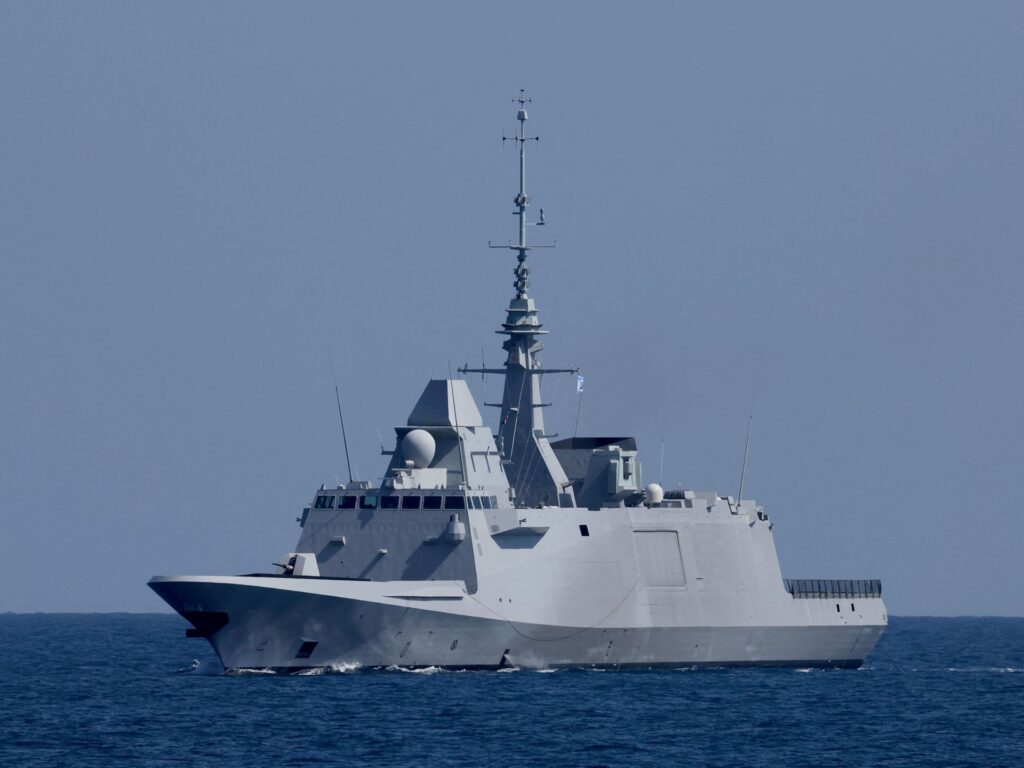Le Figaro newspaper said that Paris is skeptical about the “purposes” of the operation led by Washington in the Red Sea, pointing to fears that the US Navy, which has so far adopted a defensive stance, will turn to adopting a retaliatory strategy under the influence of Houthi attacks.
The newspaper explained – in two separate reports written by Nicolas Parrott and Adrian Golem – that many of the Americans’ allies expressed their doubts about Washington’s intentions, for reasons related to their internal politics, as is the case in Spain, or to maintain channels of communication with the Arab world, despite the agreement on coordination. and exchange of information.
Although French President Emmanuel Macron declared that the threat posed by the Houthis is “unbearable,” Paris is concerned about the extension of the conflict – as Nicolas Barthes says – if the United States is attracted to respond in Yemen against the Houthis, noting that it previously struck Houthi radars in 2016.
Defensive mission
In an attempt to clarify matters, French Armed Forces Minister Sebastien Lecornu met with US Defense Secretary Lloyd Austin last week, and the Pentagon said in a statement on the occasion that they agreed to continue working together to achieve “bilateral and multilateral solutions,” where France, in addition to the Languedoc frigate, can It provides air force “from its base in the Emirates or from its base in Djibouti.”
Lloyd Austin had made a long trip to the Middle East to clarify the features of the “Guardian of Prosperity” alliance that he wanted to build, and its mission was “defensive” in nature, and that it would serve as a “patrol” to assist merchant ships when “necessary.”
Of the 40 countries that participated in the virtual meeting, 20 countries joined it, and few of these countries have maritime defense capabilities, according to the newspaper.
Le Figaro hinted that French suspicions are due to the Yemeni Houthi attacks on commercial ships in the Red Sea that might bring the United States closer to a military response, especially since it sent the aircraft carrier USS Dwight Eisenhower and its squadron from the Arabian Gulf to the Gulf of Aden, off the coast of Yemen. And the Pentagon provided the White House with various military options against the Houthis and the bases from which they launch their attacks.
In addition, the US administration declassified a few days ago intelligence information accusing Iran of involvement in planning operations against commercial shipping in the Red Sea, supplying the Houthis with missiles and drones, and providing the necessary operational surveillance and intelligence systems to attack commercial ships crossing the Bab al-Mandab Strait.
Indeed, National Security Council spokeswoman Adrienne Watson announced that “Iranian support throughout the Gaza crisis allowed the Houthis to launch attacks against Israel and naval targets, although Iran leaves the operational decision-making to them.”
Serious crisis
The newspaper reported that the Houthis launched their first naval attacks in support of the Palestinians in Gaza, by launching ballistic missiles at the Israeli port of Eilat, then they attacked ships heading to Israel through the Red Sea or ships linked to Israeli commercial interests, and since then they have carried out about 40 attacks against commercial ships, using aircraft and using aircraft. Drones and anti-ship ballistic missiles.
This process prompted many shipping companies to divert their ships to the Cape of Good Hope, and oil companies stopped the transit of giant tankers in the Red Sea, which increased container shipping costs by hundreds of dollars, and this could lead to delays in distribution, product shortages, and disruption of the global economy.
“This is a serious crisis for global maritime trade,” said John McCown, an analyst at the Maritime Strategy Center in Arlington, Virginia. He added, “Maritime trade between Asia and Europe, which represents between 25 and 30 percent of global trade, most of it passes through the Suez Canal.” Pointing out that the Houthi attacks have consequences that go beyond the Red Sea and affect the entire world.
The United States announced the establishment of an international naval operation under the name “Guardian of Prosperity,” responsible for ensuring the security of this sea route. Lloyd Austin said, “This is an international challenge that requires collective action.” The Houthis responded with a message of challenge saying, “We have the necessary means to sink your fleet, your submarines, and your warships, at sea.” Red will be your graveyard.”

